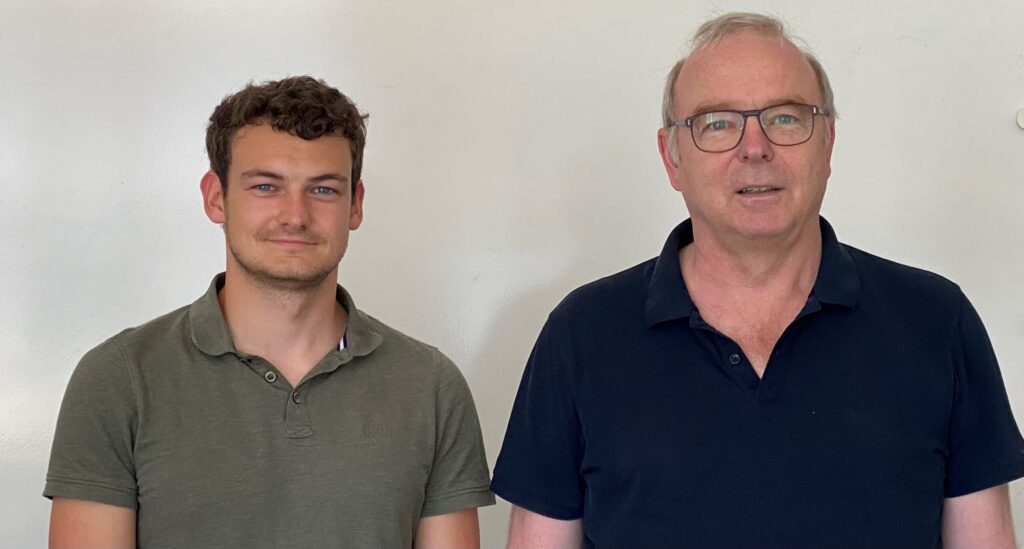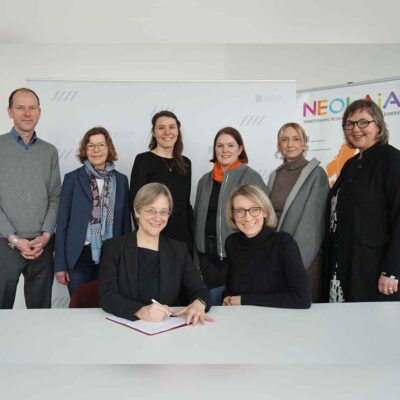Two-dimensional materials were previously considered brittle and fragile. An international research team has now developed a new method for producing films that are more than 1000 times thinner than a sheet of paper, but at the same time extremely stable and flexible. Physicists Professor Dr Armin Gölzhäuser and Jakob Kreie from Bielefeld University were involved in the research. The study has been published in the scientific journal “Nature”.
The researchers produced the films from novel molecular compounds – covalent organic networks (COFs). The material could form the basis for bendable electronics in the future, such as foldable smartphones or wearable medical sensors.

© Bielefeld University
Film flexibility thanks to innovative manufacturing method
The films, which are only 44 nanometres thick, have an extraordinary combination of strength and elasticity. They are as stable as the aluminium used in aircraft. At the same time, they are highly elastic. Unlike conventional thin materials, however, they can be strongly deformed without breaking.
The trick lies in the novel production method: the researchers use special molecules as helpers to connect tiny crystals into a network. These connections ensure that the material remains flexible without losing strength.
Possible applications from electronics to medicine
The research team sees many possible applications for their super material, for example:
- in electronics: for foldable screens or foldable computers and smartphones
- as filters: for purifying water or separating gases
- in medicine: for skin-friendly, barely perceptible sensors
The study was led by Professor Dr Zhikun Zheng. He conducts research at Sun Yat-sen University and Guangdong University of Technology in China. Zheng and his team developed the new synthesis method and produced the 2D materials. The mechanical measurements and analyses were carried out by Professor Dr Armin Gölzhäuser and Jakob Kreie from Bielefeld University. Professor Dr Ute Kaiser and her team from the University of Ulm investigated the structure of the materials at an almost atomic level using high-resolution transmission electron microscopy. Professor Dr Stefan C. B. Mannsfeld’s group at the Technical University of Dresden observed the polymerisation and crystallisation process of the 2D COFs using X-ray scattering.
Zhikun Zheng has been collaborating with Bielefeld University for more than 15 years. In 2008, the researcher worked as a postdoctoral researcher in Armin Gölzhäuser’s working group for two years.
Published in “Nature”
The study was published in “Nature”, the world’s leading multidisciplinary science journal. According to the data service provider Clarivate, Nature ranks first out of 134 journals in the “Multidisciplinary natural sciences” category, with an impact factor of 50.5 (2023).
[Translation generated with automated support]




